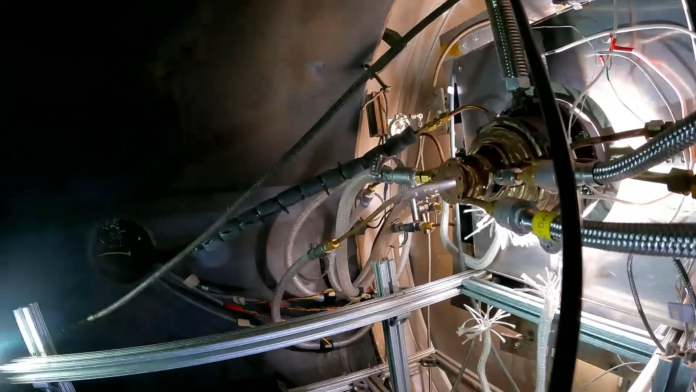TransAstra Corp. has received a contract from the U.S. Space Force to develop new applications for its Omnivore thruster. The value was not disclosed.
The Pacoima-based company said that the Omnivore project will open up the opportunity for greater access to space and accelerate space business ecosystem development.
The contract will fund the exploration of the propulsion system’s product-market fit for a range of government and commercial customers. The patented propulsion technology provides thrust typically six times faster and eight times cheaper than electric systems and enables vehicles to carry payloads several times larger than those using chemical rocket thrusters.
The Omnivore thruster uses solar reflectors to focus concentrated sunlight onto a solar absorber inside the thruster. The absorber then superheats the propellant so that it can expand and accelerate in the rocket’s nozzle, providing the most efficient thrust available on the market, the company said.
Joel Sercel, founder and chief executive of TransAstra, said the Space Force contract reinforces the value of the company’s technology and underscores how Omnivore will enable critical missions for NASA, the Defense Department and the private sector.
“This is because Omnivore is significantly faster and less expensive than electric propulsion and can use ordinary tap water or many other safe, non-toxic fluids as propellant,” Sercel said. “These factors make Omnivore the cleanest, safest, and most affordable propulsion system available or in development,”
This is the company’s first Small Business Innovation Research contract specifically for the Omnivore thruster. It follows several million dollars of prior funding, including Small Business Technology Transfer program awards from the Pentagon and NASA.
The Omnivore thruster is designed to propel the company’s Worker Bee space tugs. Because of the thruster’s capabilities, the tugs can deploy full satellite constellations in days instead of the months required by other systems, according to the TransAstra release.
TransAstra conducted research on Omnivore at its laboratory in Pacoima, which houses two vacuum chambers for solar-powered rocket testing.
The company has completed successful tests on the propulsion system at the facility using a variety of propellants.
“Partly because Omnivore is less massive at launch than chemical systems, it provides more affordable access to final destinations such as geostationary and cislunar orbits,” Sercel noted. “This contract opens the doors to understanding how the system can be used and optimized across the space ecosystem.”
